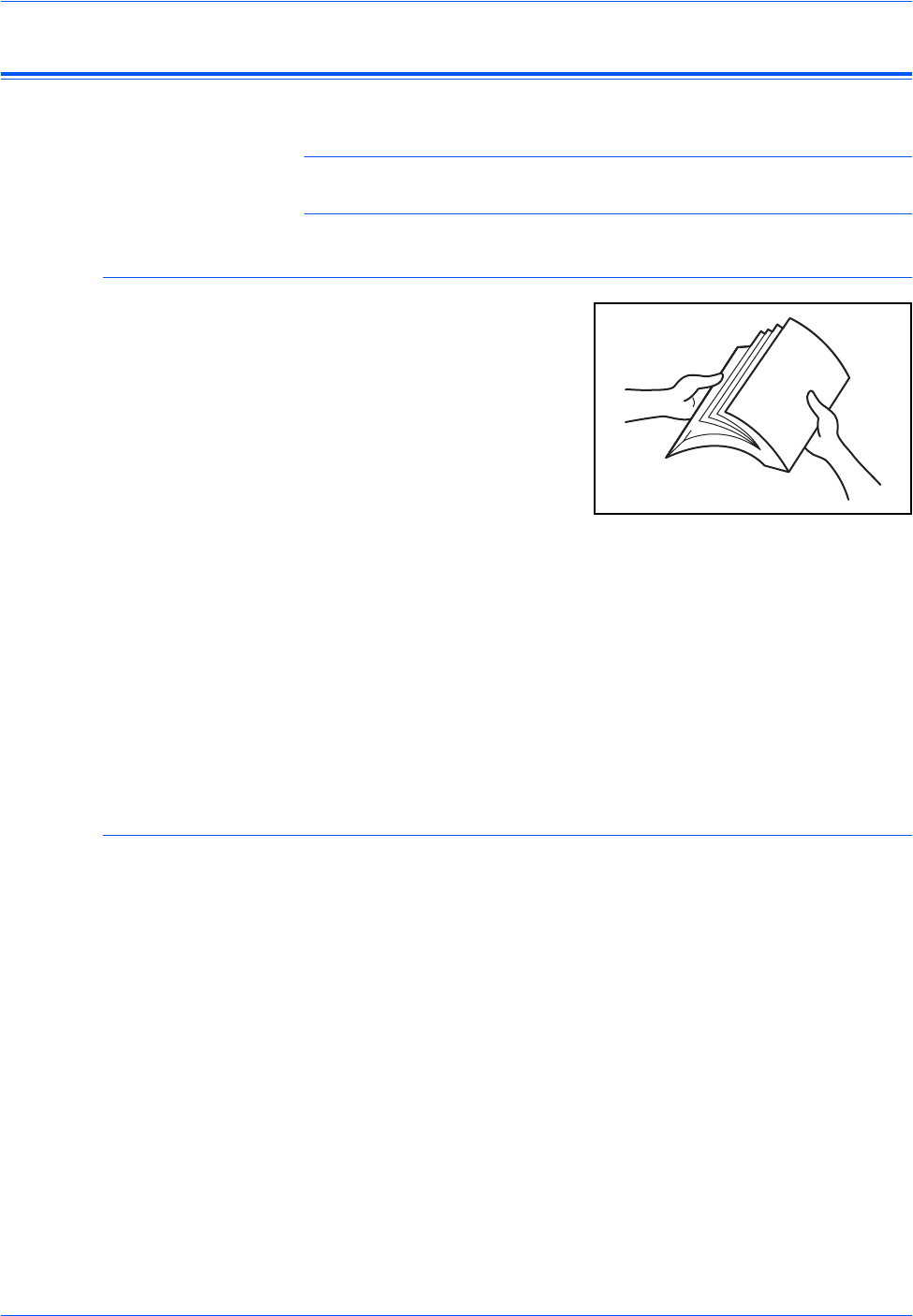
Preparation
2-2 BASIC OPERATION GUIDE
Loading Paper
Paper and media can be loaded in the Cassette or Multi-Bypass Tray.
NOTE: For information about the types of media that can be used, refer
to Appendix, Advanced Operation Guide.
Prepare the Paper
After removing paper from the
packaging, fan through the sheets
to separate prior to loading.
If using paper that has been
folded or is curled, straighten it
prior to loading. Failure to do so
may result in a paper jam.
IMPORTANT: Ensure paper is
not stapled and clips are
removed.
Load the paper with the side which faced the top of the packaging face-up
if using a Cassette and face-down if using the Multi-Bypass Tray.
Leaving paper out of its package under high temperature and high humidity
conditions may lead to problems caused by ambient moisture. After
loading paper into a Cassette or Multi-Bypass Tray, seal the remaining
paper in its original package. If the machine is not being used for a
prolonged period of time, remove all paper from the Cassette(s) and Multi-
Bypass Tray and reseal it in its original packaging.
Loading Paper into a Cassette
Standard paper (60 to 90 g/m²), thick paper (90 to 105 g/m²), recycled
paper, or color paper can be loaded. Up to 300 sheets of standard paper
(80 g/m²) can be loaded into each cassette at one time.
The paper sizes which can be loaded are: A3, B4, A4, A4R, B5, B5R, A5R,
Folio, 11 × 17" (Ledger), 8
1/2 × 14" (Legal), 11 × 8 1/2", 8 1/2 × 11" (Letter),
5
1/2 ×81/2" (Statement), 8 1/2 × 13" (Oficio II).
IMPORTANT: The type of paper that is being loaded into a cassette
(standard, recycled, etc.) must be specified. For details refer to Chapter 3,
Advanced Operation Guide.
